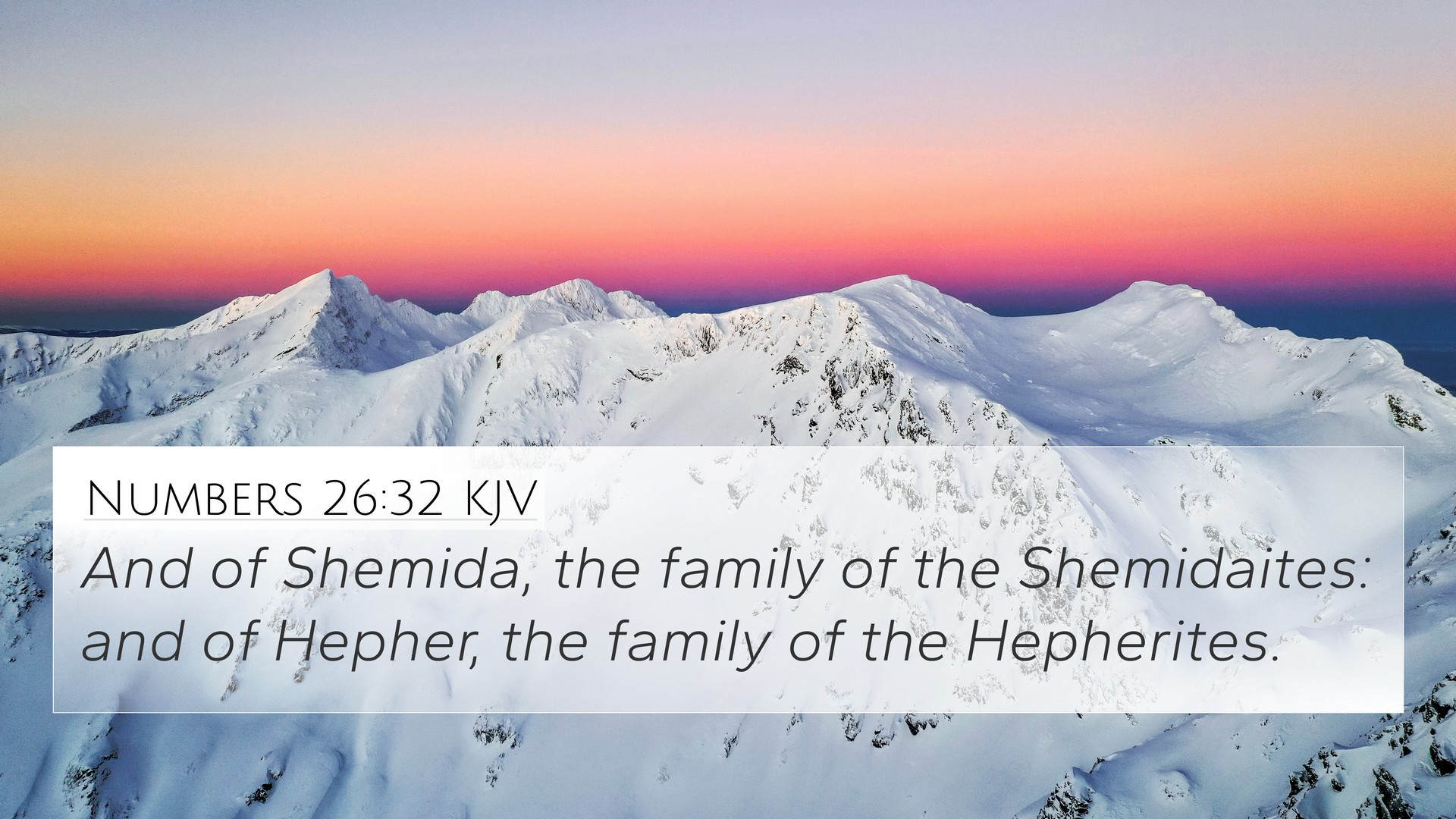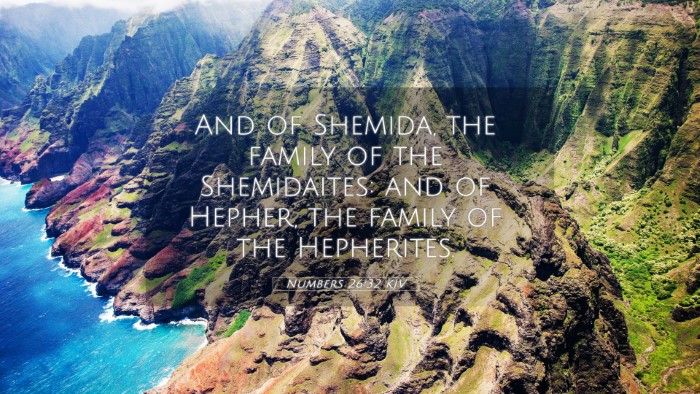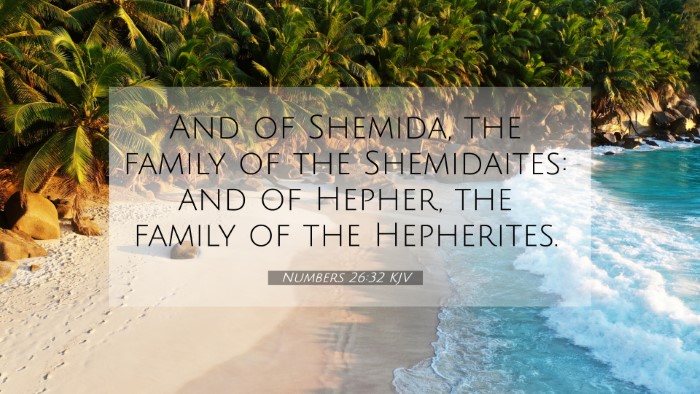Understanding Numbers 26:32
“And Zelophehad, the son of Hepher, had no sons, but daughters; and the names of the daughters of Zelophehad are Machlah, Noah, Hoglah, Milcah, and Tirzah.”
Numbers 26:32 pertains to the important lineage of Zelophehad, highlighting the names and existence of his daughters. This verses serves not only as historical documentation but also carries theological implications regarding inheritance, gender roles, and divine provision.
Analysis and Commentary
-
Matthew Henry's Concise Commentary:
Henry emphasizes the significance of names in this verse. Each daughter of Zelophehad represents individual potential and the challenge of societal norms regarding inheritance. This narrative reveals God’s justice and sensitivity towards the rightful ownership of land, regardless of gender, which was significant in a patriarchal society.
-
Albert Barnes' Notes on the Bible:
Barnes notes the context of the verse where the Israelites were being prepared to enter the Promised Land. He highlights that it is notable that these women were not left without rights; this shows a progressive view toward the inclusion of women in inheritance, which was rare in ancient cultures. The daughters’ names echo their individual stories and tribulations.
-
Adam Clarke's Commentary:
Clarke discusses that this verse illustrates the importance of family and genealogy in the Bible. The mention of the daughters suggests that God values all His creations equally and delivers His promises to all, thus advocating for recognition of women's roles within Israelite society. The daughters’ inheritance symbolizes a divine approval of women’s rights and responsibilities.
Cross-References to Consider:
- Numbers 27:1-11 - Discusses the daughters of Zelophehad asserting their right to inheritance.
- Deuteronomy 21:15-17 - Law regarding inheritance rights concerning sons and daughters.
- Galatians 3:28 - Highlights the equality of all individuals in Christ, resonating with the themes presented in Numbers 26:32.
- Matthew 5:5 - “Blessed are the meek, for they shall inherit the earth” relates to the idea of inheritance and divine promise.
- 1 Peter 3:7 - Speaks about the honor and acknowledgment of women, aligning with the themes found in Numbers.
- Luke 8:1-3 - Mentions women who played significant roles in supporting Jesus, emphasizing women's contributions.
- Acts 2:17-18 - Fulfillment of God's promises to both men and women, signifying divine equality.
Thematic Connections:
- Women in Leadership: Numbers 26:32 serves as an early example of women receiving inheritance rights, challenging patriarchal views.
- God’s Justice: Asserting divine fairness and justice in the distribution of land and resources aligns with broader Biblical themes of equity.
- Inheritances and Promises: The concept of heritage extends beyond familial lines, linking with countless scriptures regarding God's promised blessings to those faithful to Him.
Conclusion
This verse, Numbers 26:32, while seemingly straightforward, encapsulates profound lessons about social justice, gender equity, and divine promise. As seen through the lens of diverse commentative traditions, it provides a template for understanding the intricate tapestry woven throughout Scripture regarding the role of women, inheritance rights, and the overarching theme of God's inclusivity. By cross-referencing this verse within a broader Biblical context, one can appreciate the significant impact and discussion surrounding the roles of women in ancient Israel, offering insights applicable to today’s discourse on gender and rights within faith communities.


